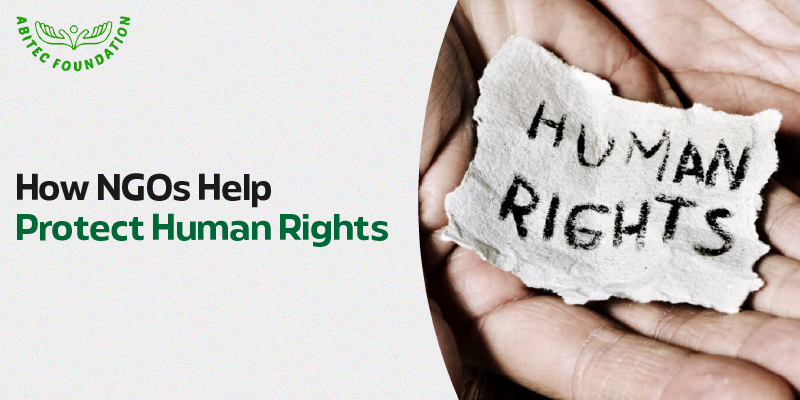Social empowerment is all about helping people feel stronger and more in control of their own lives. That could mean making your own choices or working together as a group to bring change. A non-profit organization in Odisha helps make that happen by offering support where it’s really needed.
How NGOs Protect Human Rights
- Giving a Voice to the Overlooked
NGOs help out where the government can’t always manage. They go into regions that might be ignored and make sure that no one is left behind. For women, children, refugees, and minority groups, NGOs help protect rights and make sure their voices are heard.
- When Plans Change They Adjust
Big organisations can be slow. There’s always a process, and everything takes time. NGOs don’t have that problem. If something needs to be done, they just roll up their sleeves and get on with it. They try things, see what works, and adjust along the way. It’s that kind of quick thinking that really helps when time is short.
- Sharing What Others Want to Hide
NGOs are often the ones who go in and see what is really happening. They do not have to follow anyone’s line, and they are not afraid to report things as they are. If people are being treated badly or ignored, NGOs make sure it gets noticed. Their reports go to the people who can take action, and sometimes that is what pushes things to change. Without them, many stories would go unheard.
- Helping Women Find Their Voice
Real change starts when women are given the chance to grow on their own terms. NGOs understand that many still face struggles just because of their gender, and they’re working to change that. With the right support, women can feel more confident, more secure, and more in control of their lives.
Here’s what we’ve been working on:
- Running self-defence workshops in schools, colleges, and local communities
- Organising talks and group sessions about women’s health, rights, and financial independence
- Offering vocational training to help women gain job-ready skills
- Setting up a helpline where women can report abuse and speak to someone for legal guidance
- Providing microfinance support for women who want to start their own businesses
- Holding regular sessions to talk about domestic violence and discrimination, and how to get help
- Making Sure Everyone Gets a Chance to Learn
The NGO believes that no child should be held back just because of where they’re born. By setting up schools in areas that need them most, they’re making sure more children get the education they deserve.
- Health Care for Communities
Good health should never be out of reach. The NGO runs medical camps and health awareness drives to support people who often go without basic care. By making healthcare more accessible, they’re helping communities stay strong and thrive.
- Human Rights Advocacy and Awareness
An NGO plays an active role in promoting human rights and pushing for social change. Through public events, community engagement, and media outreach, they work to raise awareness about key human rights issues. These efforts are not just about sharing information; they’re about encouraging people to speak up, get involved, and stand against injustice in their everyday lives.
- Measuring Impact and Future Goals
NGOs regularly look at how their work is making a positive impact. By using proper tools to monitor and evaluate progress, they can see what’s working well and where they need to do better. This helps them shape their plans, make smarter choices, and ensure that their efforts continue to create real, lasting impact.
Conclusion
In today’s world, human rights are still being denied to many. NGOs play an important role by standing up for those who are unheard, supporting communities, and pushing for fair treatment for all. A non-profit organisation in Odisha, like Abitec Foundation, works on the ground to bring real change where it’s needed most.
If you care about fairness and want to help in a simple, honest way, get in touch with us.
Frequently Asked Questions
- What does social empowerment really mean?
It’s about helping people take charge of their own lives. That might mean gaining confidence, learning new skills, or coming together to bring change to their community.
- How do NGOs support human rights?
NGOs step in where help is needed most. They speak up for people who are often overlooked and ensure their rights aren’t forgotten. They also raise awareness and share the truth about what’s really happening on the ground.
- How can I support a non-profit organization in Odisha, such as Abitec Foundation?
It can be as simple as spreading the word, making a donation, or volunteering your time. If you care about fairness and community, reach out to Abitec Foundation and see how you can get involved.

